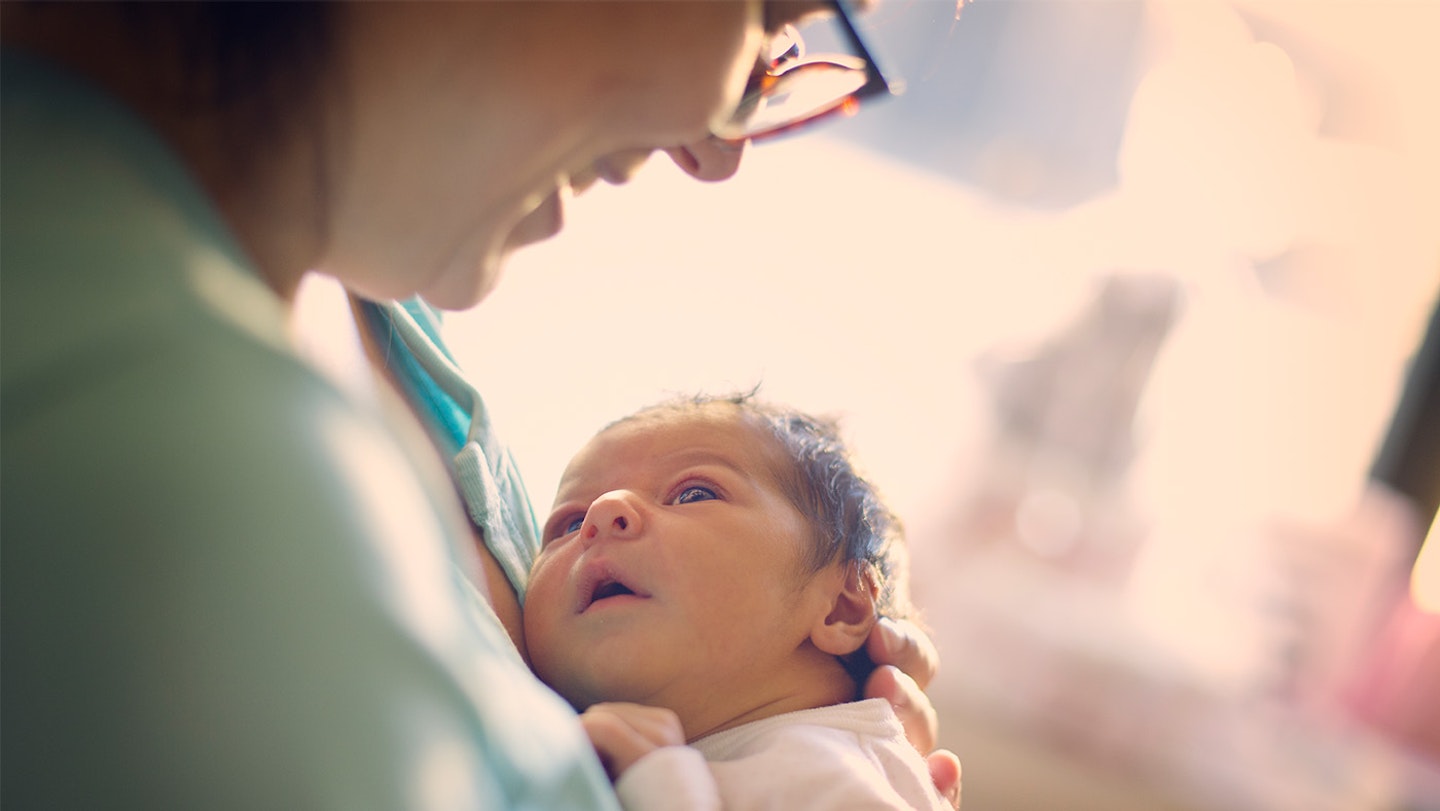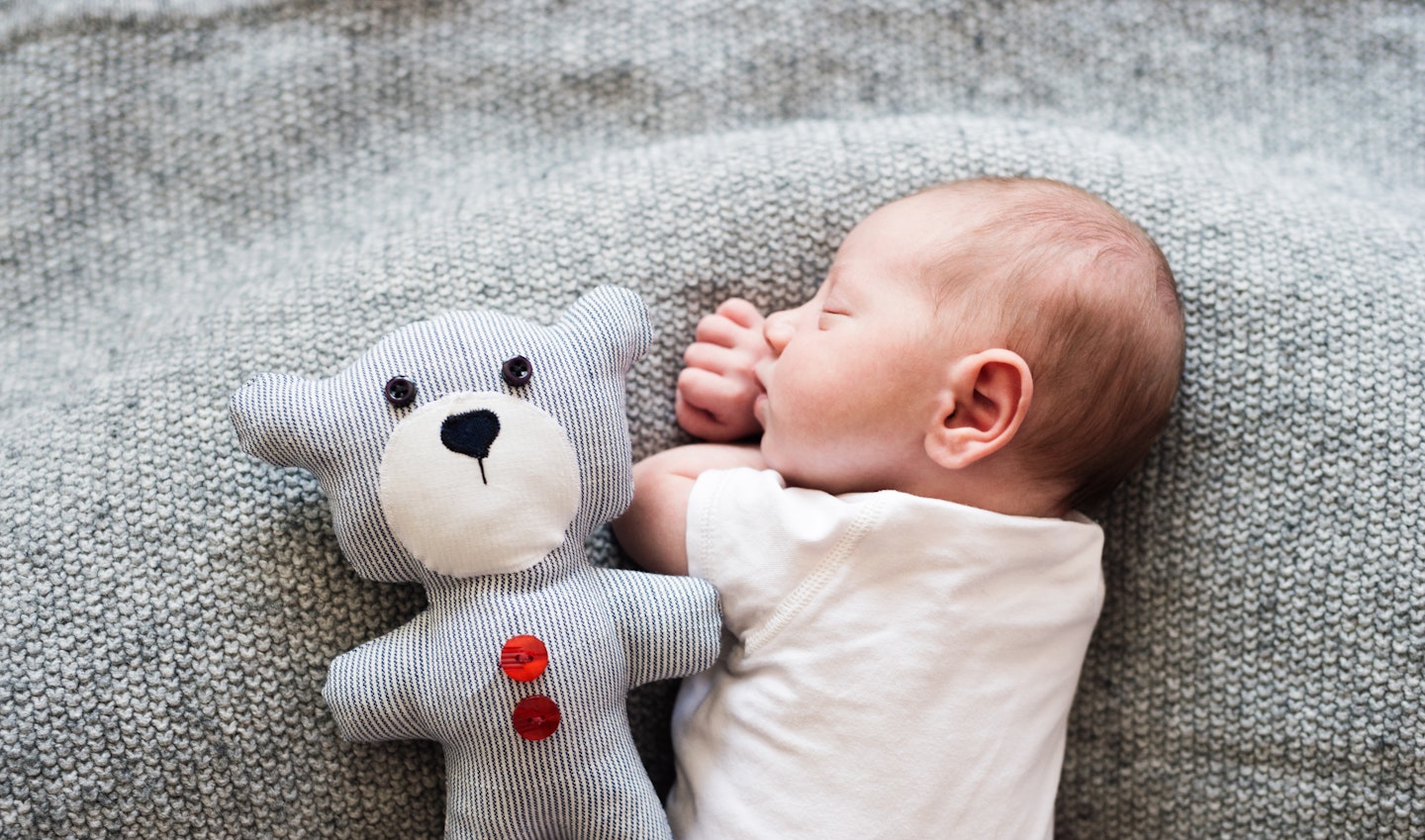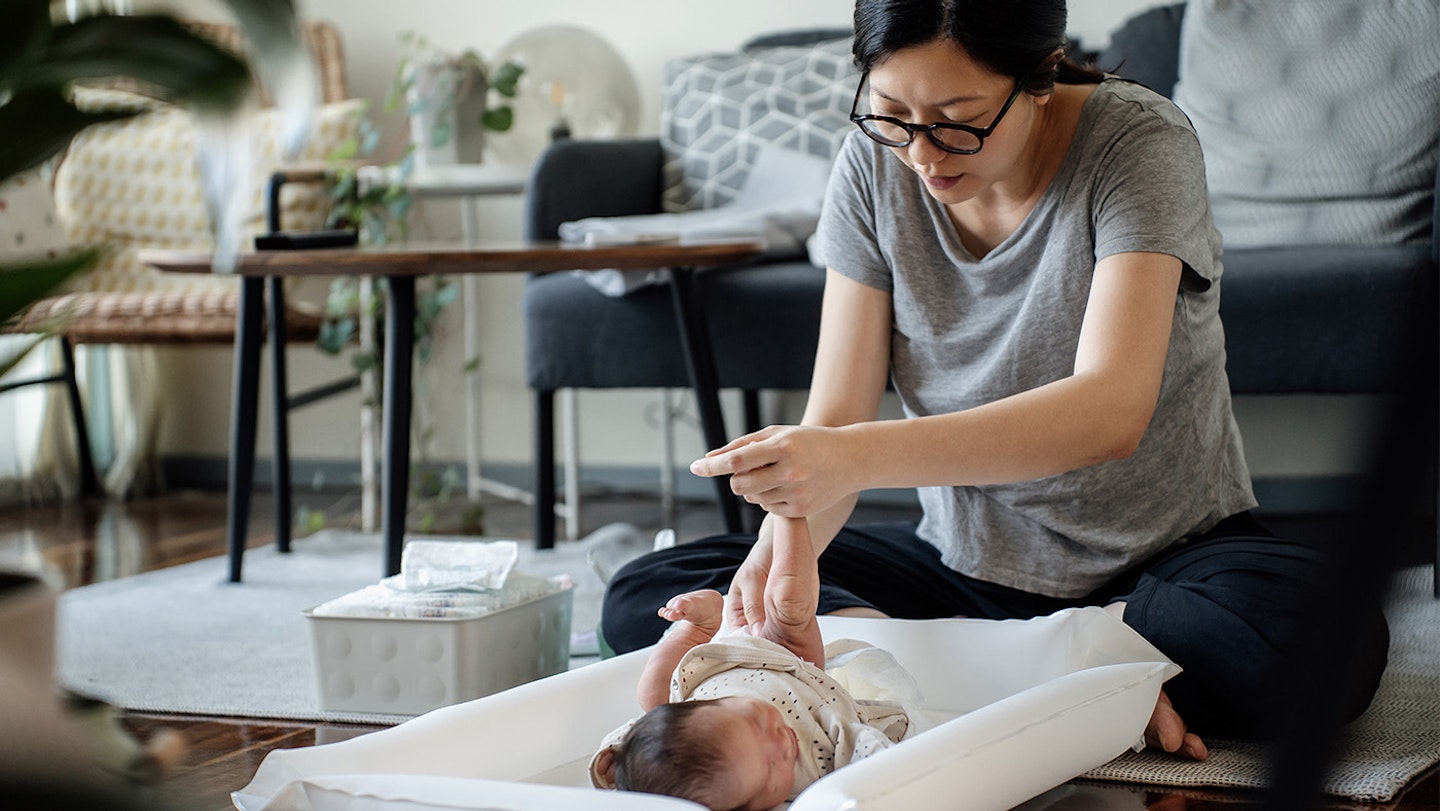Wow, how quickly is time going? After waving goodbye to having a 2-week-old newborn, you now have a 3-week-old baby and before you know it, you'll be celebrating them turning one month old.
You may be getting more used to your new life with your newborn, but there are still plenty of questions to be answered as they grow more and more each day in their baby growth spurts.
From sleep to first smiles, colic and sleep associations, here’s what to expect from their week-by-week development as your child reaches this baby milestone.
3-week-old baby's growth
Remember those ‘newborn babies’ on TV that you assumed looked just like the real thing? By the third week, your baby is likely to look more like that. Baby's skin should be peeling less and looking more plump, pink and clear.
Your little one will be gaining pounds and ounces but don't be tempted to compare their growth to other babies of a similar age. Your health visitor will be keeping an eye on your baby's weight and height gain and recording their growth on the centile charts in their personal child health record (PCHR). Should there be any concerns, your health visitor will be able to assist.
While your baby's nervous system and muscle control are yet to mature, you’ll find their movements to be jerky. Don’t worry, these will become more fluid as their muscles get stronger.
As your baby is growing more and more, and quickly, some of the tears can be due to growing pains. If your baby is crying uncontrollably, this may be colic. Crying is their main communicator right now and they cry most in the first 12 weeks.

3-week-old baby's development
Your baby can still only see what is 8-12 inches in front of them but they might start to recognise your face. They will love to watch you and may look like they are carefully studying your facial expressions or when you're chatting with some other adults, listening to what you're saying.
They will still only see things in black and white, with shades of grey and will slowly start to develop their colour vision at around 4 months. The best thing you can do to improve your baby’s development at this stage is to allow them to study your face and copy your lip movements. They will start to develop subtle cues you may notice if you watch carefully. Looking ahead to 4-weeks-old, your baby will soon discover their fingers and toe!
Hold your baby's face close to yours and speak to them. The third week is the time to start building their language development, as they won't be able to understand everything just yet. They will make noises in response and this is a great way to bond with your baby.
Your baby may now be recognising songs or sounds they heard when they were in the womb, proving babies start learning before they enter the world. They will also start realising they can make specific things happen, but they will find it difficult to remember what they've learned. Don’t worry, their memory will improve as the weeks go on.
To speed up the process of lifting their own head, your baby needs to spend more time on their stomach while they are awake - babies should always sleep on their back. This is why tummy time is so encouraged as it helps strengthen the neck muscles so baby can push up to sit up, roll over and crawl. It will also reduce the likelihood of your baby developing a flat spot on the back of their head from always being on their back. Sooner or later they’ll be running around all over the place, so take solace in these precious moments you can keep them somewhat still!
Put your face in front of your baby's while they’re on their stomach, as this will encourage them to look up at you and start to lift their head and move it from side to side more.
Wondering when babies start to smile? By three weeks, if lucky your baby may be trying out their first smile, copying your facial movements and poking their tongue out. But don't worry if they aren't as most babies smile between six weeks old and twelve weeks old.
3-week-old baby sleep
At this age, your baby is sleeping a lot! During the first few weeks of a baby’s life, they need 18 hours a day of sleep, with frequent feeds in between. It sounds peaceful, but by now you know it’s anything but that. It’s not too early to start teaching them a sleeping schedule though. Establish the difference between night and day by not altering your own activities during daylight hours. When it’s daytime, keep the house bright and noise levels normal, then at night time make sure not to play or fuss too much when they wake up and keep the house dark and peaceful. That way your baby will begin to recognise that nighttime is for sleeping.
Don’t worry if everyone in your mummy group seems to be getting more sleep than you are, you are doing a great job - some babies are just better sleepers.

3-week-old baby food
Whether you're nursing or giving your baby formula, it’s difficult for a baby to overeat at this stage, so don’t worry if your baby seems to be consuming more than you thought. For a basic guideline, measure your baby's weight and then feed them 150ml-200ml per kilo. The best thing you can do is feed them whenever they need it, as babies typically know exactly how much food they need at this stage.
If you’re breastfeeding, it may be more difficult to know how much breast milk your baby is having, but as long as they are latching on and feeding until they want to stop, all is ok.
Colic in your 3-week-old baby
Affecting up to 40 per cent of little ones, colic in babies is a normal fear for many parents. There is no definite cause of colic but it often occurs during the three to six-week mark in your baby’s life and is uncontrollable and meaningless crying that can be exhausting for you. However, it is thought to dissipate by three months old – which probably still feels like a long way off right now. The best thing you can do is figure out whether your baby is experiencing colic, or if there is another reason, such as a urinary infection, in which case you should contact your baby's doctor.
3-week-old baby health
You have another five weeks before your baby needs any vaccinations at eight weeks old. This includes the 6-in-1 vaccine, Rotavirus vaccine and MenB.
Week three is often the time when your baby will develop certain skin conditions like rashes, acne or cradle cap. These are normal but can be discomforting for your little one. Try to use sensitive soap, reduce the number of baths your baby is having, and don't squeeze any spots.
When it comes to poo, every baby is different. Some may poo straight after a meal or others may be less regular. As long as your baby is pooing between one and ten times a day, they’re within the norm. If you’re worried about the poo itself, check out our poo colour chart.

Postpartum and new baby tips
Are you going it alone? If your partner has returned to work, you may be starting to feel lonely in your everyday activities. It’s a good time to join some parenting groups and meet up with some other new parents.
Postnatal depression: Your hormones should be settling now, and that means bye-bye baby blues. If you’re still struggling with feelings of failure or as though everything could go wrong as it’s your fault you may be experiencing postnatal depression. Take a trip down to your doctor for advice and don't be afraid to get help when you need it. If you do find yourself struggling with postnatal depression, remember this doesn't make you a bad mother and is a condition that affects one in ten women.
Pelvic floor: Your pelvic floor is the sling of muscle that keeps you in shape downstairs. Nine months of supporting a baby have stretched it. Pelvic floor exercises will help it back into shape, and aid bladder control. "Imagine you need to hold in a wee and a poo - and squeeze!" says Dr Ellie Cannon. "Repeat this for five minutes every time you feed your baby. As you become stronger, try holding in your tummy muscles at the same time."
Sore breasts: Breasts that are working hard to feed a baby can get painful, especially if you're experiencing the likes of mastitis. Keep a couple of clean nappies in the freezer. After a feed, place them in your bra to cool and soothe.
Baby sick: As you cuddle your baby against your shoulder, they’ll bring up regurgitated dribbles. ‘A newborn has a very small stomach that can’t handle much milk," says Ellie. "And the muscle that keeps the milk in their stomach isn’t very strong." Your handy muslin is there to save the day.
Be aware of sleep associations: A newborn baby usually only wakes up when they are hungry. But as the weeks go on, that starts to change, and they build sleep associations. "Whatever you do now to help them get to sleep, such as rocking or feeding, they’ll want you to keep doing," says Ellie. "Put your baby down to sleep when they're awake. Let them nod off on their own or with a lullaby."
